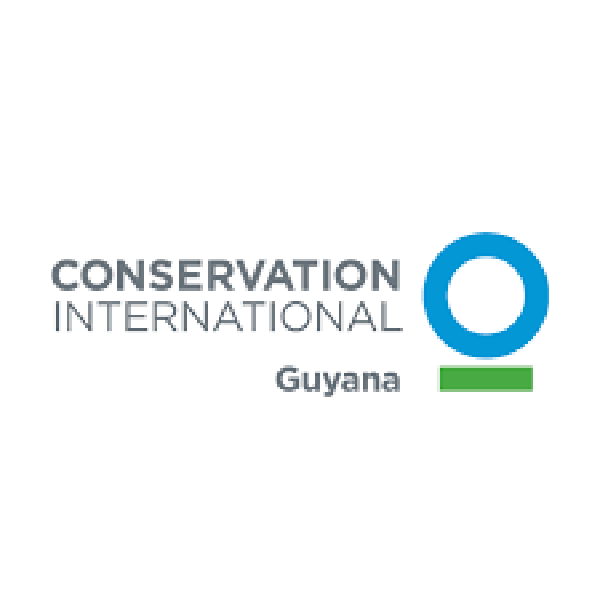Conservation International Guyana (CI-G) has withdrawn from a US$10 million partnership agreement with ExxonMobil that was aimed at the advancement of a sustainable economy through investments in education, research, sustainable management and preservation of the country’s ecosystem.
“We jointly agreed with Conservation International to discontinue its participation in the programme,” Janelle Persaud, Public and Government Affairs Advisor for Exxon affiliate Esso Exploration and Production Guyana Limited, told Stabroek News in response to queries about the severed partnership.
CI-G’s Technical Director Curtis Bernard, in a response to questions posed by this newspaper, deflected when asked why his organisation had opted out of the agreement.
There has been no definitive explanation as to what led to the end of the agreement between the parties. However, CI-G had come in for flak for entering the partnership with the ExxonMobil Foundation, the oil major’s philanthropic arm. CI-G is an environmental organisation while ExxonMobil is a carbon releaser that has been accused of denying the impact of fossil fuels on climate change.
Critics have said that the conservation work of CI runs counter to the carbon-emitting profile of ExxonMobil and that CI-G had allowed its independence to be compromised by entering this partnership with ExxonMobil.
Bernard said that CI-G is working in partnership with a variety of established partners and donors to continue implementing and supporting environmental initiatives and sustainable development in Guyana. CI-G, he noted, is fostering conservation efforts in the Rupununi and on the coast
Notwithstanding this development, Persaud, in an email response, said, the ExxonMobil Foundation is continuing its support for economic diversification, capacity building and the preservation of Guyana’s unique natural heritage for future generations.
“We will continue our support by partnering with local NGOs to implement this important environmental work in Guyana,” she explained.
Under the agreement, CI-G was expected to work along with the University of Guyana (UG) and the Arizona State University (ASU) on sustainable development, economic diversification and conservation efforts.
According to Persaud, the Foundation is nonetheless moving forward with its mandate to lend support for capacity building and conservation efforts through the UG. She noted that the programme is yielding tangible results by helping UG educate, train and support the next generation of Guyanese leaders in the sectors.
“The ExxonMobil Foundation is currently supporting advanced degrees for 20 UG academics and future leaders (16 PhD and 4 MSc) in sustainability, chemistry, engineering, agriculture, entrepreneurship, data sciences, community participation and sustainable tourism. The programmes are being delivered for UG by Arizona State University,” she disclosed.
Over their lifespan, the projects being undertaken by these scholars, Persaud said, are expected to engage or employ 1,000 community workers; involve, train, engage and certify 500 students and policy makers, and include more than 100 multi-disciplinary researchers.
The projects are trackable online through the production of publications and videos.
A virtual symposium introducing this programme was held on June 14, 2021, she added.
Just after the signing of the partnership agreement in 2018, ExxonMobil had said in a statement that the investment is also aimed at supporting Guyana’s Green State Development Plan, the country’s then 15-year development plan that, among other things, intended to diversify Guyana’s economy and balance economic growth with sustainable management and conservation of the country’s ecosystems. The statement said that ExxonMobil Foundation will provide the investment over five years.
The statement had said that initial grant money would fund a feasibility study piloted by CI, through its affiliate CI-G, to further define the details of the programme. Once defined, CI-G and UG were expected to deliver the education, training, research and retention programmes that would “help ensure that economic growth reinforces Guyana’s environmental development goals”.
The statement added that the investment was also aimed at expanding conservation areas in the Rupununi Wetlands, help mangrove restoration and management and support improvements to community-based fishing on Guyana’s coast, a sector the government of Guyana has identified as critically important to the wellbeing of the Guyanese people.
During the 2018, signing of Memorandum of Understanding (MOU) at the Pegasus Hotel between the two universities, Bernard said the agreement with the universities along with the then partnership with ExxonMobil Foundation marked the type of diverse collaborations which are needed for the country to secure its future.
Then Vice President of CI-G, David Singh, during the signing, had said that the project would be very significant and while it is still in its early stage of development, they were hoping to have deeper engagements with many of the stakeholders to come up with the most strategic approach to invest in people and nature, with the ultimate goal of increasing conservation, and job and livelihood creation for a sustainable and diversified economy.








